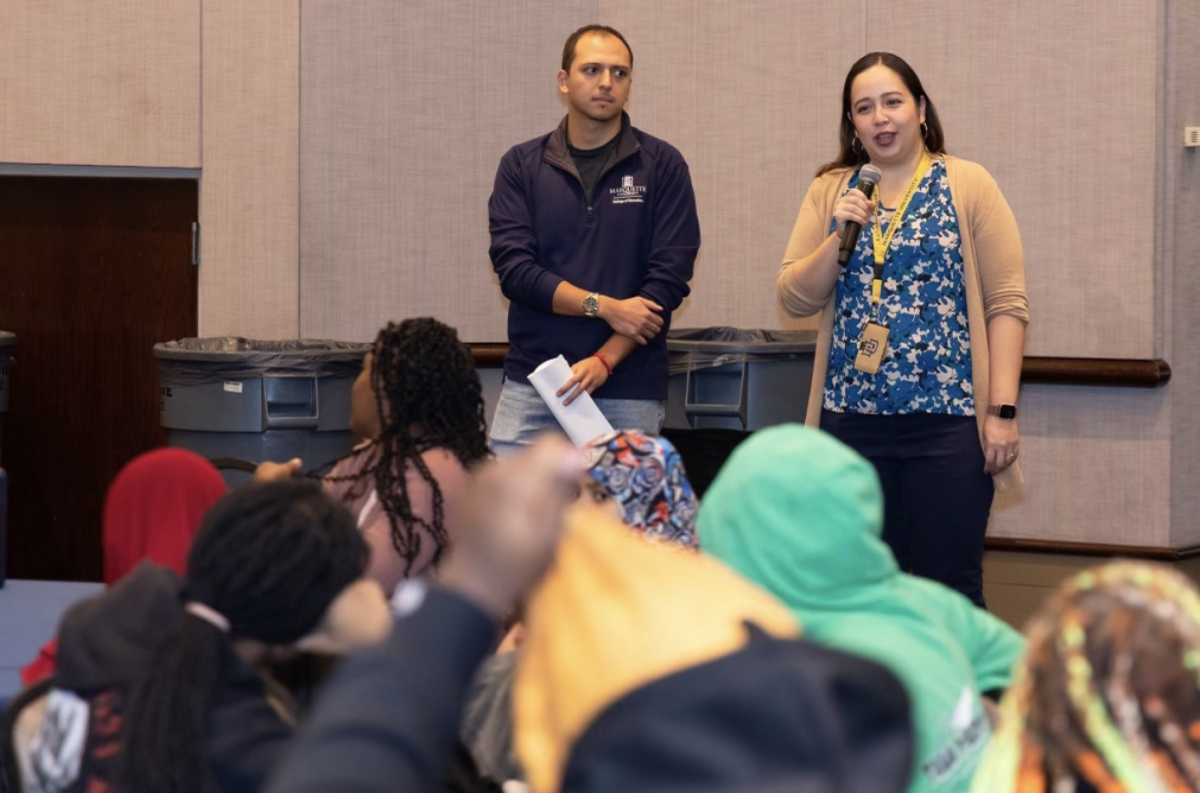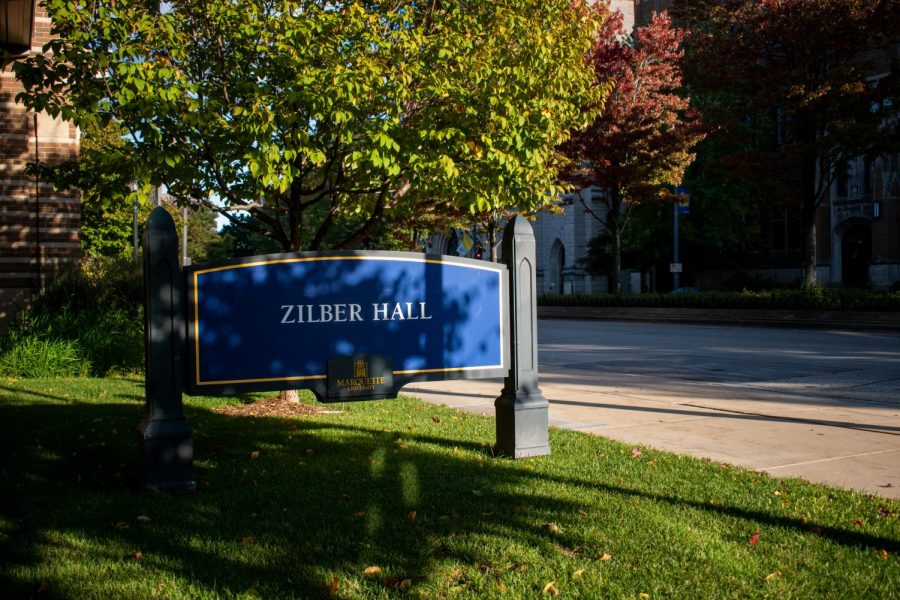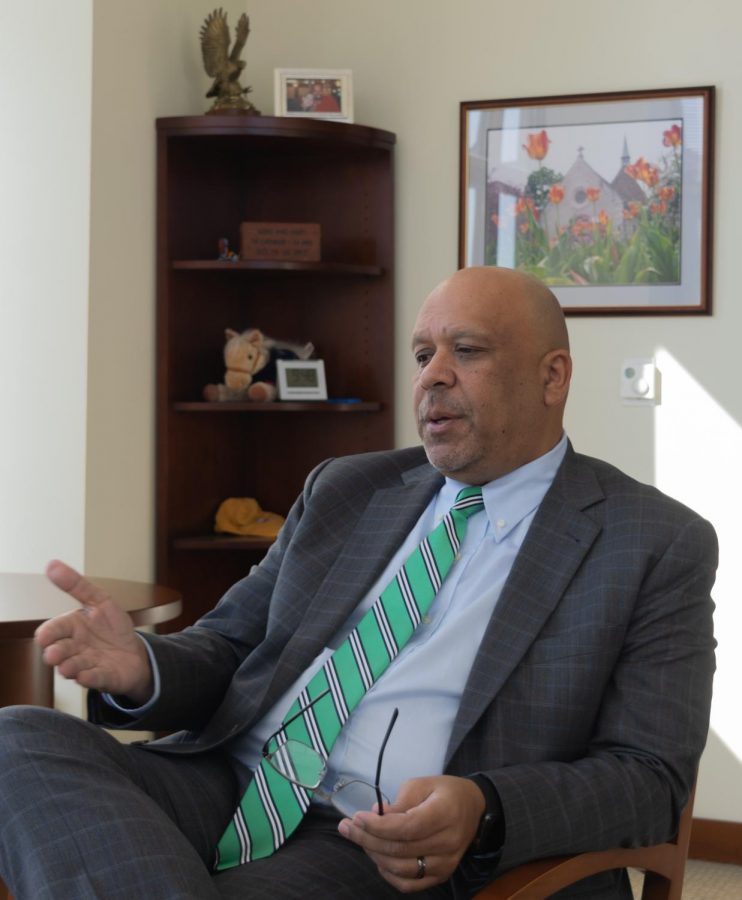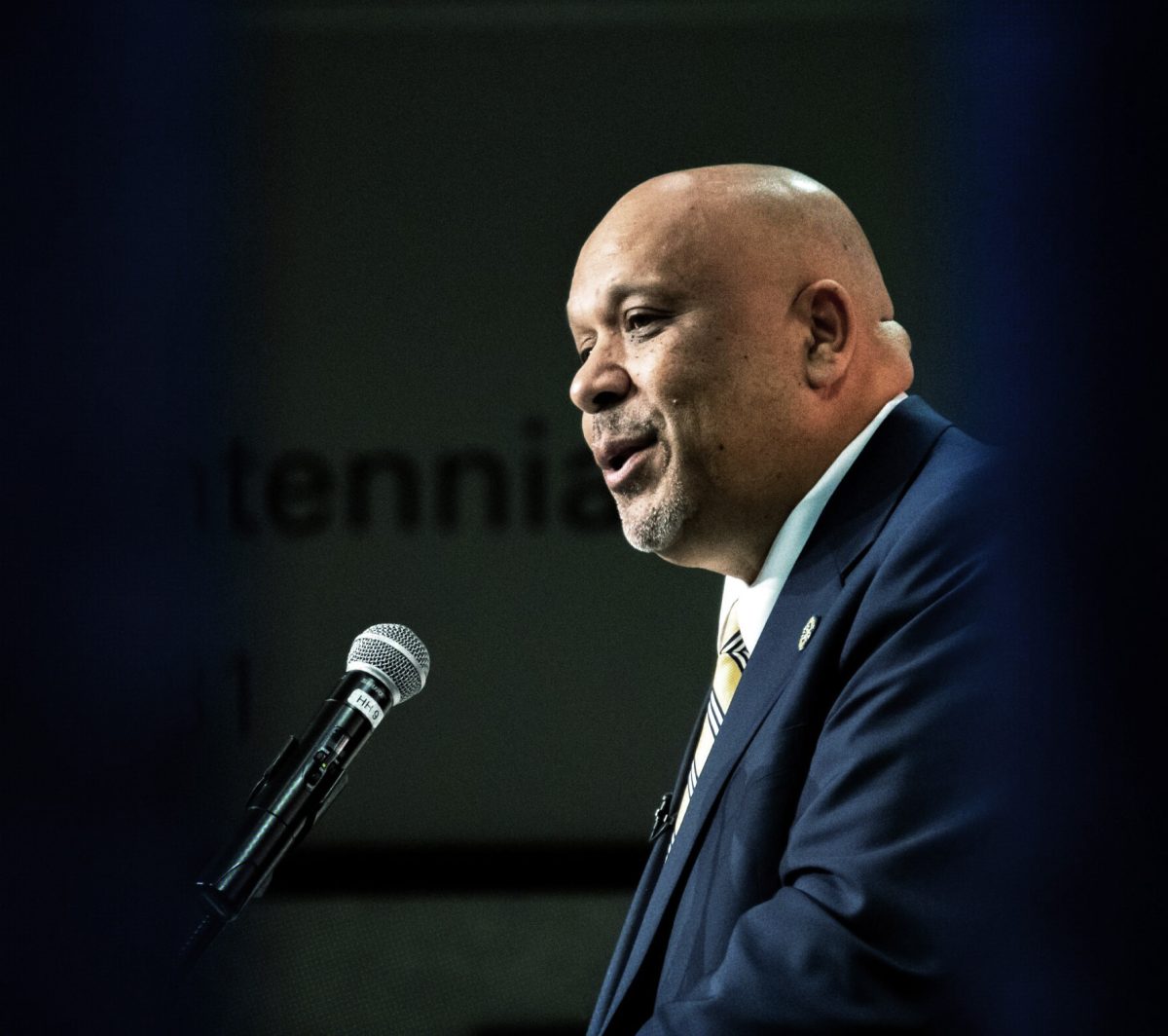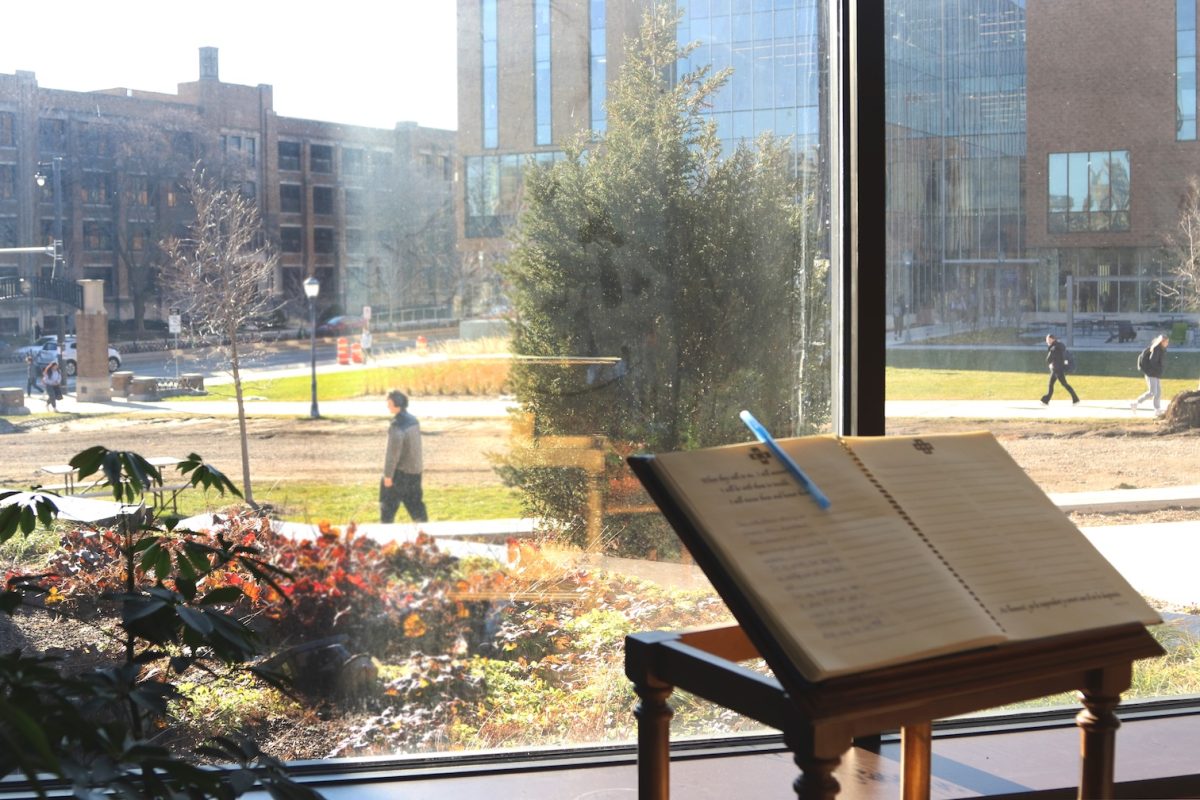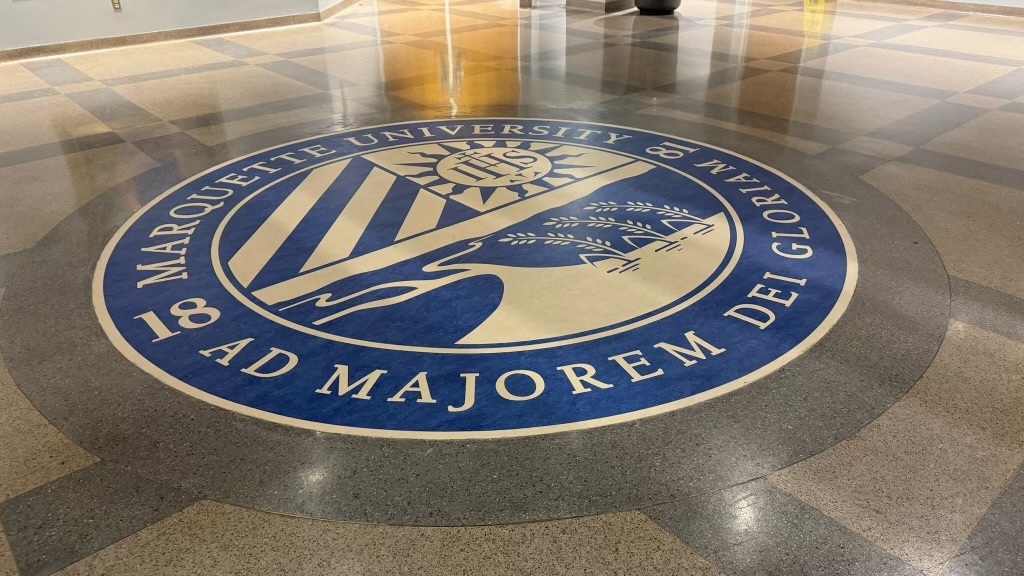
Anyone involved with the Milwaukee Public School system, from its new superintendent to student-teachers, will tell you: It’s in trouble.
MPS has missed the Adequate Yearly Progress standards in reading and mathematics set up by No Child Left Behind legislation every year since its inception in 2002, according to the Wisconsin Department of Public Instructions’ AYP Review Summary for the district.
This year the district reached a “Level 5” improvement status, which is the highest indication that a district needs help, meaning it missed AYP standards for five or more years.
Problems run deeper than statistical deficits and failed standards, according to members of the Marquette University community.
William Henk, dean of the College of Education, said, “Some of the achievement gaps, specifically Caucasian and African-American achievement gaps, are really unacceptable.”
Ellen Eckman, chair of the Educational Policy and Leadership department, believes the system is doing better than it’s generally portrayed, but stressed the necessity of getting parents involved and dealing with the poverty issue as well as instability in children’s home lives.
Over the years, the MPS Board of Directors and various administrators have tried to fix this failing system many ways, including the addition of a literacy program and free lunch services. With new leadership, the district plans on taking a new approach that involves financial sustainability, parental involvement and, above all, students.
Despite a myriad of problems, educators still have hope for the MPS system, and many believe change will come with one man: Gregory Thornton, the new MPS superintendent.
“Student achievement’s our business, and we really need to focus on that,” Thornton said during an Oct. 7 College of Education luncheon. “We want to refocus our energies on creating opportunities for kids, so kids can have choices at the end.”
Most of the College of Education faculty believes Thornton is the right fit, considering the current state of MPS.
“I think he’s a champion for children in lots of ways, and that’s very exciting,” Eckman said. “He seems so open, he seems genuinely to like people, and the school board seems excited to have him, but … he has a big job ahead of him.”
Thornton, who began his new two-year superintendent contract with the Board of School Directors in July, comes from Chester Upland School District in Pennsylvania, where he served as superintendent. He brought about increases in student achievement ratings, created community partnerships and improved fiscal and business efficiencies, according to his biography on MPS’ website.
He also served as Chief Academic Officer of the School District of Philadelphia and held leadership positions in Maryland’s Montgomery County Public Schools, Winston-Salem/Forsyth County Public Schools and Charlotte-Mecklenburg Public Schools – both in North Carolina – for a combined 33 years of educational experience.
Thornton’s plan includes a threefold focus on student achievement, financial sustainability and community partnerships with universities and organizations in the area.
“The vision is that when our young people graduate from high school, they have good choices that are not confined because of a lack of education or poor education that’s come along the way,” Thornton said. “When kids come out (of MPS), they’re on their way somewhere and they’ve been given the tools that are necessary to be successful.”
Thornton called on Marquette directly to be a resource for MPS in the future.
Marquette can work on teaching educators, providing meaningful service in education and after-school programs and presenting opportunities for MPS graduates as a way of helping Thornton accomplish his threefold plan.
Marquette’s program prepares teachers for urban and diverse situations through diversity-focused courses and urban placement programs, Eckman said.
As part of this program, education students participate in 12 Service Learning Programs set up with MPS schools in which they spend two to three hours per week tutoring, providing classroom aid and helping with extra-curricular programs, said Corey Young, assistant director of Marquette’s Service Learning Program.
“The Marquette student is providing a vision and a dream that Marquette is attainable for (MPS students) as well,” Young said. “So, I think there’s the indirect motivation we’re providing just by being there, and being with them, as our students are serving as good role models.”
Nicole Tridimas, a fifth year student in the College of Education and current student-teacher at Ronald Reagan College Preparatory High School, believes sending students to teach in MPS schools is important for fostering a good relationship with the system and individual MPS students.
“I think (after school programs) are a good thing because the students are in an urban setting,” Tridimas said. “Teachers have over 100 students, so they can’t tutor everyone after school, and kids keep out of trouble when they have activities to do or people there to tutor them.”
Marquette could also foster opportunities for MPS students and graduates through admission and high school programs.
The university is reaching out to MPS students with scholarships and summer programs, Eckman said.
“(Many MPS graduates) haven’t (come to Marquette) for a long time, and we’d like to encourage them to look at Marquette as a place to attend school,” she said.
Cashay Harris, a former student at Custer High School and a current freshman in the College of Arts & Sciences, believes Marquette provides a lot of opportunities for MPS students, but could send more representatives into schools to tell students what to expect at Marquette.
At the College of Education luncheon, MPS School Board Director and Marquette Adjunct Professor Larry Miller said the Board of Directors knew transformation was in store for the district with Thornton and the struggle to meet standards. But, as he said, they can’t do that job alone.
“The whole community has to come together around MPS, and we have to prove that we’re worthy of that as an institution,” he said.
Henk believes the future lies in mobilizing the community and losing the politics of education, instead focusing on the kids.
Thornton said the whole community would have to think differently about education to achieve significant improvement.
“Poverty matters … the economics of our community and joblessness matters – all of those things come into (our schools),” Thornton said. “We have to figure out as a city what we want for our kids, and what’s the city’s vision – not so much my vision – that will be around when I’m gone and the Board’s gone.”
Henk believes in the “adopt-a-school” model in which one organization uses all of its resources to help one school become successful.
Organizations like City Year, Big Brother/Big Sister, the YMCA or Boys and Girls Club, which go out and help urban communities, paying attention to schools, would help individuals connect to MPS, he said.
Emily McDonough, a sophomore in the College of Education, said, “I think it’s a great idea to get the community involved, especially the parents involved with the kids, and get them to know what they’re doing. Kids’ morale would go up. They would persevere through the endless things they have at home.”
Thornton said while creating such a community will require a lot of work, he believes that Milwaukee is a place that can win, and has the right community ingredients of courage and strong will.
“There’s an imperative that must exist, and that’s that education is everybody’s business,” Thornton said. “Because we’re at a place that urban education is in trouble, probably more so in Milwaukee because of our poverty challenges, we all have to get our uniforms a little dirty to get this done.”





